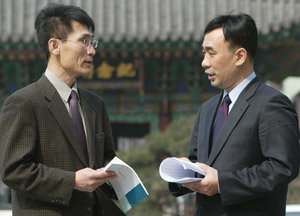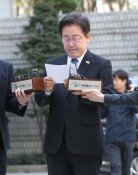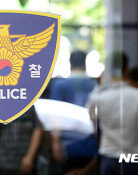Korean Culture in the World

The popular soap operas in Korea last year were All-in, Autumn Fairy Tale, and The Untamed Cat. However, their program ratings in Taiwan fell short of our expectations. This is remarkable considering the Taiwanese once stopped at nothing to get Korean soap operas. In particular, the failure was shocking because Taiwan has been a bridgehead for introducing Korean culture to countries with Chinese culture such as China and Malaysia.
Meanwhile, Winter Sonata, which NHK telecast through satellite broadcasting service last April, recorded a twenty percent program rating in Japan. That was beyond our expectations. Therefore, NHK decided to telecast it through its regular broadcasting service this April for the first time as a Korean soap opera.
Like this, the reaction to Korean culture is various in Asian markets. Experts say that the popularity of Korean culture has reached a turning point, and is facing both possibilities and limitations at the same time since its beginning in the latter half of 1990s.
Jeon Hyun-taek, a manager at the International Marketing Team of the KOCCA and Jang Soo-hyun, a professor of the Department of China in Kwangwoon University had a talk about the flow and the task of Korean culture in the Dong-A Daily conference room, sponsored by the Korea Research Foundation.
-Korean culture, now in its second generation.
Jeon Hyun-taek: When Korean culture first entered the Asian market, it was in the curiosity stage. However, now Asians consider it as a part of their own culture. Korean culture tends to expand in the region to enter and the genre to show. It is still in the early stages of entering Islam cultures such as Malaysia.
We exported Doctors to Iran, and Joyful Girl to the Philippines. In terms of genre, we started from movies, music, and soap operas. Now, popular ones also include online games, mobile content, character industry, and animation.
Jang Soo-hyun: It is because Korea has a higher level of pop culture. Koreans used to listen to U.S. pop music and watch Hollywood movies, but now they prefer Korean pop music and Korean movies.
Jeon: There are different reactions to the same content. For example, Japanese women in their thirties like Winter Sonata. They say it is nostalgic and that its production techniques are like a polished dramatic scene that is behind that of Japan. Meanwhile, Vietnam considers it to have advanced content. The Chinese like Korean pop singers with dance music such as H.O.T and Lee Jung-hyun. The Japanese prefer singers who are good at live music such as Jaurim and Big mama. Those are not popular in China yet.
Jang: The Chinese say situations in Korean soap operas are familiar to them like their family affairs, while Japanese soap operas are fresh but not sympathetic because they are unrealistic and fantastic.
Jeon: China is uncomfortable with Japanese culture because it suffered from Japans invasion. It has wariness against the U.S.A., the most powerful country. To Korea, it is friendly as a part of a minority race. Thats why it receives Korean culture so easily.
The task for the second generation
Jeon: In Vietnam, seven out of ten of the top 10 percent of consumers use LG DeBon, a Korean cosmetics brand. It is because Kim Nam-joo, the popular Korean actress in Vietnam, is the spokesmodel of that brand.
Jang: Chinese production techniques in soap operas are developing rapidly. Chinese people invest a lot, as they know it is profitable. China will consume its own culture soon. We shouldnt be optimistic with the idea that the popularity of Korean culture will last long.
Jeon: We should cooperate with China to develop Asian content that can be popular in the world market as a long-range plan. There is no more new subject matter in U.S. The success of Crouching Tiger, Hidden Dragon in U.S. shows that Hollywood is finding new material in Asia. It is noteworthy that Japan is occupying the half of the entire animation market.
Jang: The Chinese intellectuals who I met last year said, Is there only pop culture in Korea? There are only two Korean books that have been translated into Chinese: The Scent of Love and Autumn Fairy Tale. Both are originally from a movie and a soap opera. We should focus more on the ones not in the pop culture to make Chinese opinion leaders understand Korea better.
Jin-Yeong Lee ecolee@donga.com







